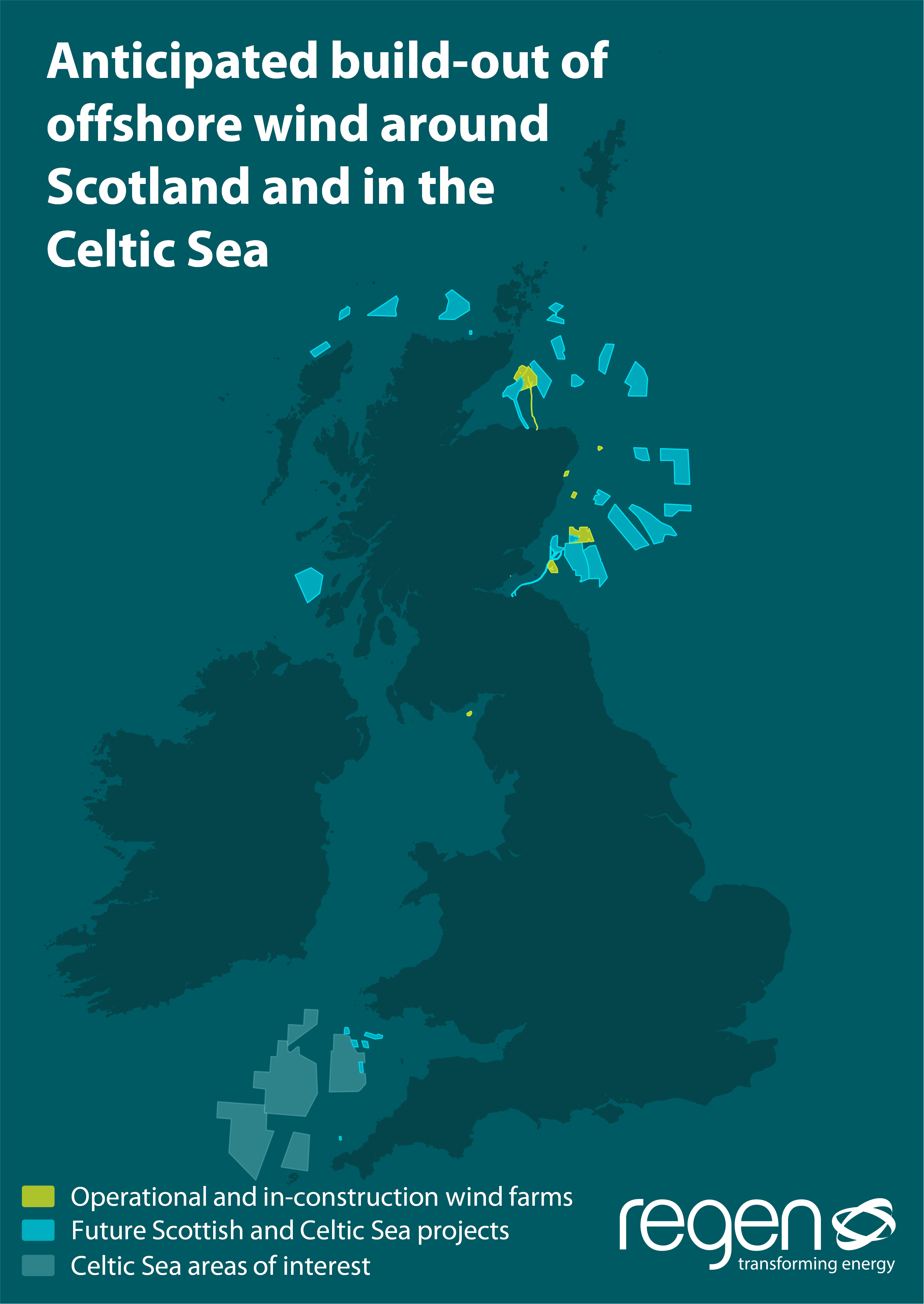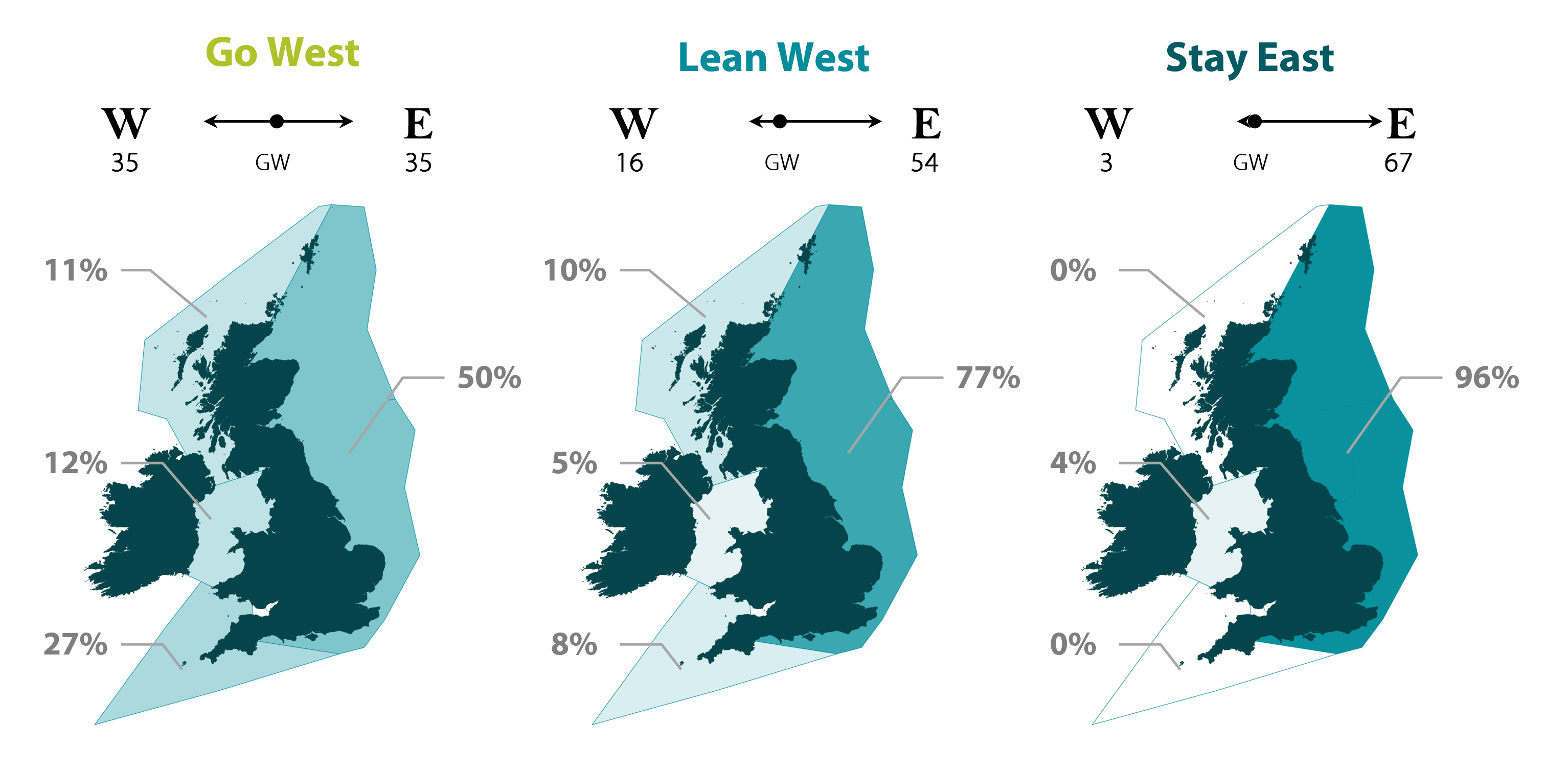Final report published 19 October 2022
The ‘Go West!’ paper explores and identifies the benefits to the UK energy system and energy consumers of an offshore wind fleet that is more distributed around the UK.
The ‘Go West!’ paper explores and identifies the benefits to the UK energy system and energy consumers of an offshore wind fleet that is more distributed around the UK.

The ‘Go West!’ paper is jointly sponsored by Simply Blue Group, Magnora Offshore Wind, Morwind and Northland Power, with Regen retaining editorial independence over recommendations and conclusions. The project has been informed by engagement with key energy sector stakeholders, including National Grid ESO, BEIS, Ofgem, Welsh Government, The Crown Estate, rUK and the CCC.
The study and its findings

A huge expansion of offshore wind is coming, but development to date has been focused in the southern North Sea. This concentration within a single weather window is already causing system balancing and price volatility issues. There is significant potential for offshore wind capacity off our west coast, but there are significant challenges to bringing forward capacity.
The ‘Go West!’ study combines 20 years of historical wind resource data with three possible future offshore wind fleet scenarios – ranging from an east coast-biased fleet (‘Stay East’) through to a more geographically diverse fleet (‘Go West’) – to explore their energy generation potential and the associated system benefits.
By comparing these scenarios, the study finds that balancing offshore wind capacity between east and west coasts offers the following benefits:
For more information, please contact Jack Adkins, Senior Analyst at Regen or visit the ‘Go West!’ project page

Please note that this is an amended version of the full report as of 9:30am on 20th October 2022